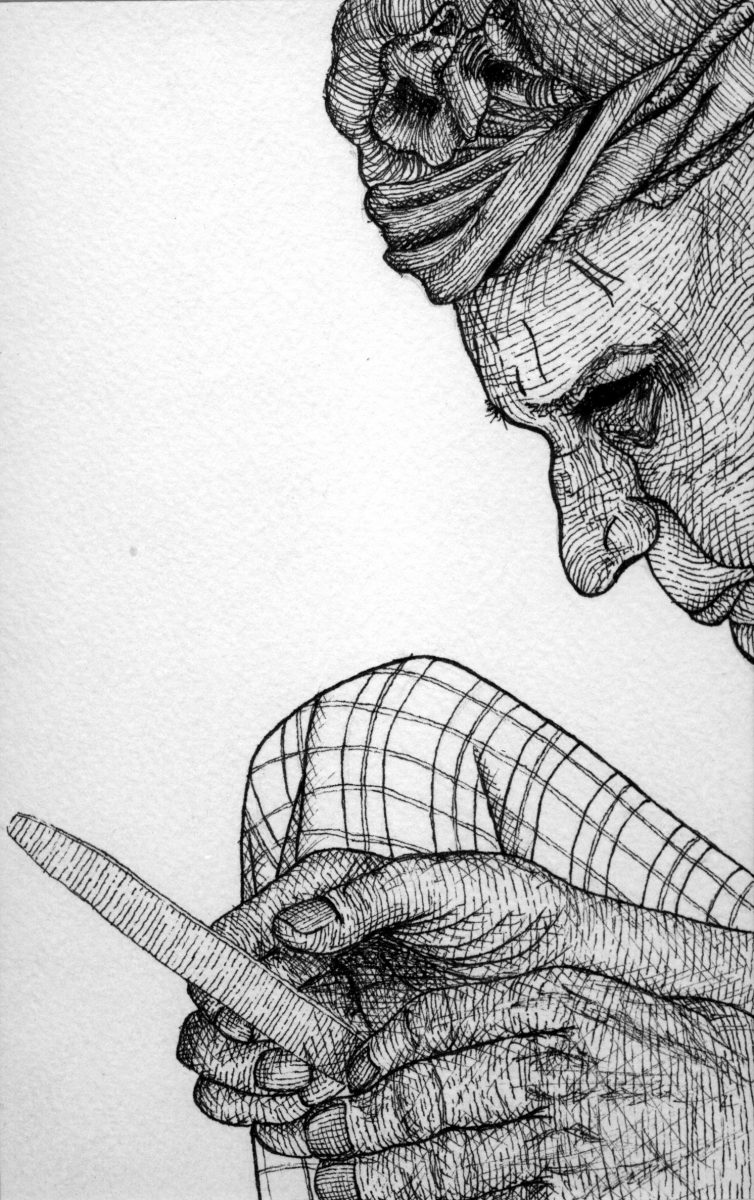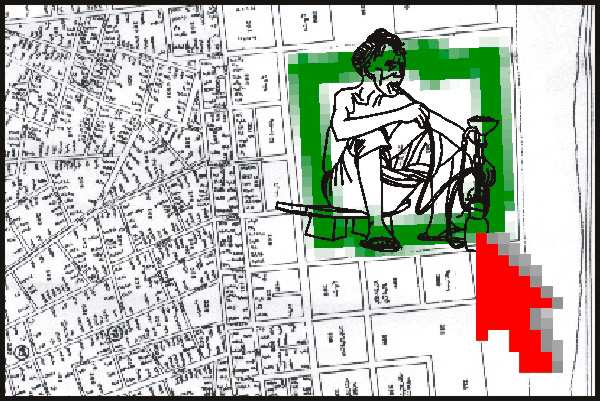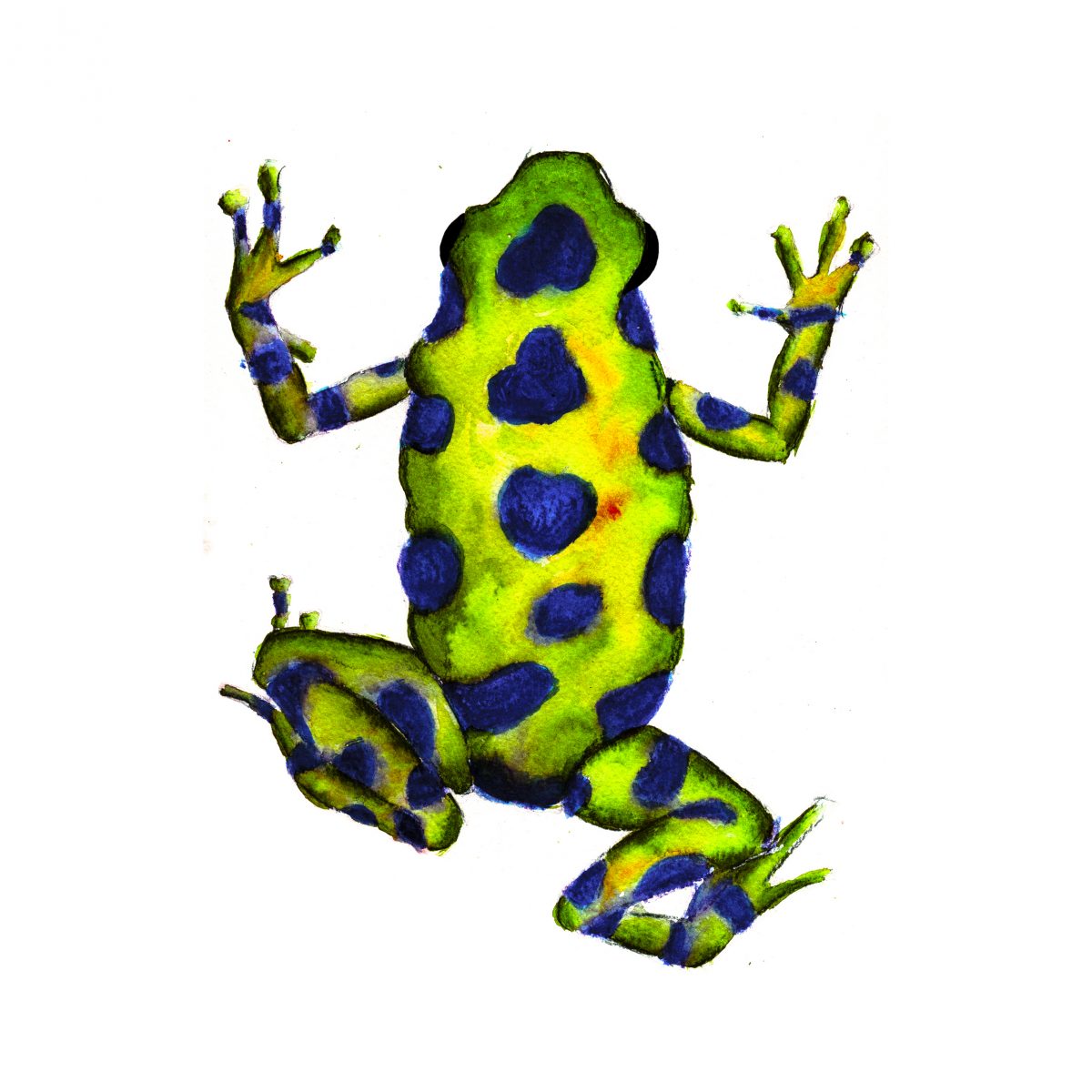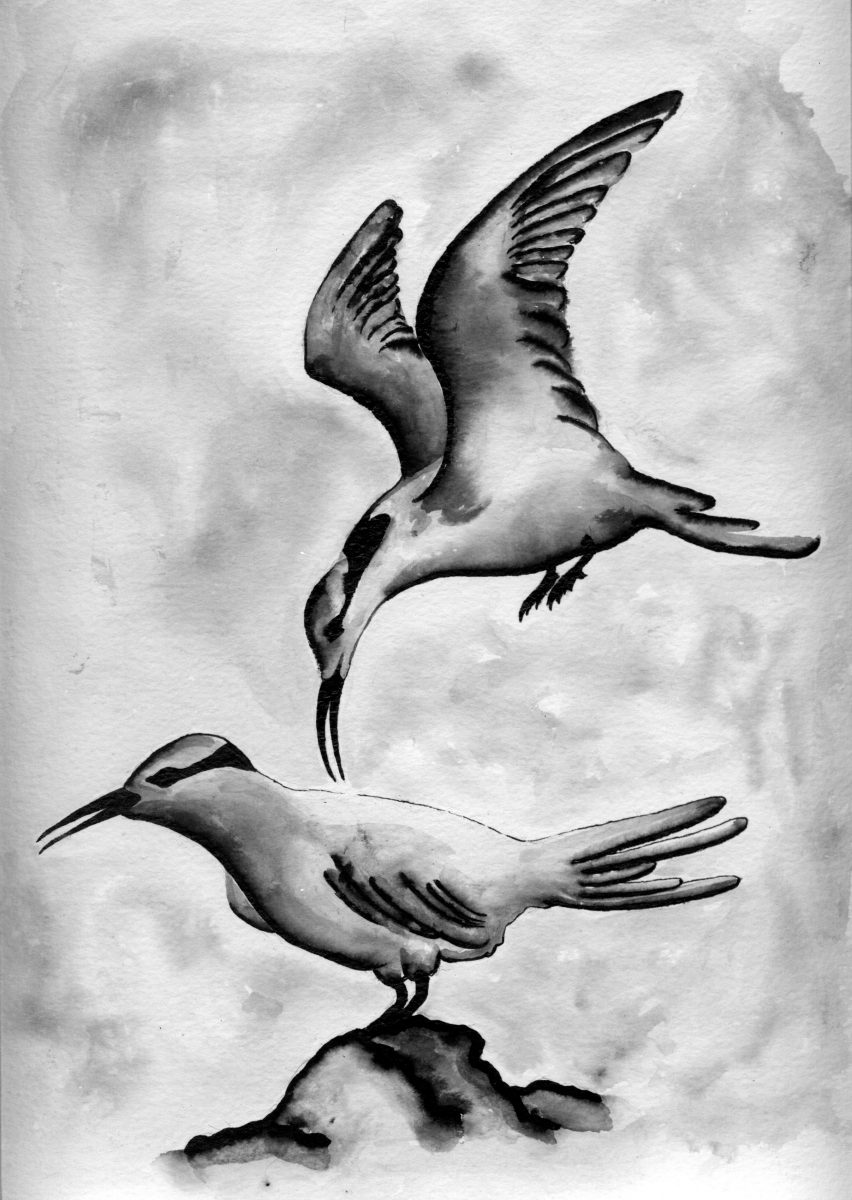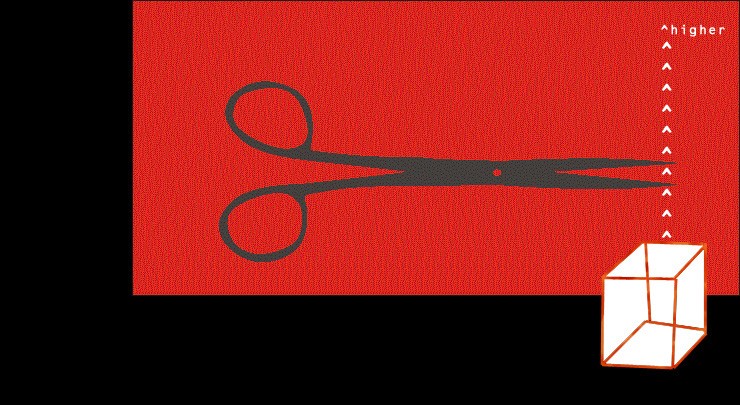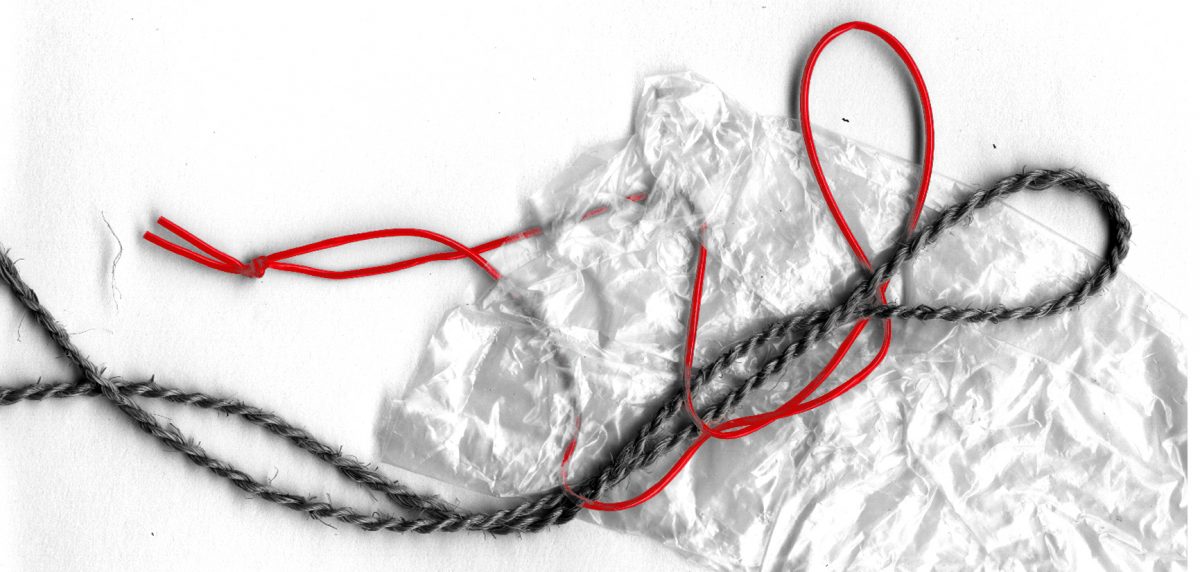
* * * * * * * *
Hus'sayinu be’
Yesterday Hussainube’ passed away. I had promised him that I would send him a shirt and a mundu (sarong). That was nearly two years ago. He passed away before I fulfilled my promise. He is the last living person of the unsung men whom I have loved. These men whose lives are insignificant to many; but they have left their mark on me and the communities they belonged to. Those lives that I myself have not celebrated nor given the importance that I should have, while they were alive.
Hussainube’ was the cook in an Atholhuge while I was working there. A tall, lean, effeminate man, with a toothless grin, who made the best boakibaa i had ever tasted. He lived alone, had never been married and had no children. He was looked after by a nephew and his wife. Hussainube’ in turn tended to the nephew’s children.
Hussainube’ was a jovial man and his jokes almost always centered around sex. Each conversation I had with him always brought up the question of how and why in the world I was unmarried. “Don’t you ever want to do it?” or “Have you never really done it?” Coming from someone else, I would have been offended. With him I was not. I believed he was genuinely concerned that I was missing out on sex; according to him, the greatest joy of life. Strange, that he himself had not got married, but seemed so concerned that someone else was missing out. I can only say that I had heard Hussainube’ preferred a certain sex. I never questioned him on his sexual preferences. It never bothered me.
I remember him, squatting on the badhige floor, while rolling out roshi and cracking jokes. Often these were targeted at the Atolhu Ofees staff. Whenever I came in, they turned on me. Hussainube’s perception invariably centred upon the notion that i and my two male colleagues, were “doing it” because men and women could not live together and not. . .
When the scorching heat of the day got too much for me I often frequented a holhuashi on the beach, fortunately not visited by the menfolk as most holhuashis usually are. Hussainube’ would come and join me with his small “k'illi thalhaa van”. He knew I liked areca nuts. He liked them too. Since he could not chew in the absence of the majority of his teeth, he crushed the nuts into powder with betel leaves. I would get my share when I joined him on the holhuashi. Sometimes, I was treated to other local delicacies, thelulikeyo (fried breadfruit) being a favourite. Here, the talk we had would take a more serious note... he was not feeling all that well, how were my parents? How was my family? When would I seriously settle down?
* * * * * * * *
Idhu rees be’
The holhuashi was also frequented by Idrisbe’. A burly, black man who would be lying on his back, his big stomach protruding. Hussainube’ and Idrisbe’ were no fans of each other. I like to think i was the one thing they had in common. Idrisbe’ was perpetually riddled by a problematic stomach. No doctor had been able to alleviate Idrisbe’s problem of “vai” (gas). Idrisbe’ always asked me for advise and I always gave him the same answer; doing exercise, drinking lots of water and eating greens, especially papaya and mango. Idrisbe’ and Hussainube’ were civil when we three happened to sit together on the holhuashi, but I always felt “Hussainube’ was a wee bit jealous that Idrisbe’ and i might “hit it off”.
When i left my job, my relationship with Hussainube’ was that of sending “helloes”. If he knew someone from the island was coming over and would meet me, I would get his salaam. And I would in turn send my “helloes”.
He visited me once in my hometown.
Then he came to visit me before he to left for a pilgrimage.
Since then, I was able to visit him thrice. His health steadily deteriorating; suffering from diabetes and its related complications. He could hardly move about but was managing. The last i visited, he was bedridden, lying on a thin mattress in his dimly lit room, with no ventilation and precious few possessions. He asked me for a shirt and mundu. I promised to send these and never did.
Yesterday afternoon, Hussainube’ crept into my mind. I remembered the shirt and mundu and once again promised myself that I should get down to doing it.
Yesterday, in the early evening hours, I was informed he passed away.
* * * * * * * *
Maha-moodhu be’
Mahamoodhube’ was a loud, boisterous man of a short, stocky stature. He was the local “fa'kkandaa-meehaa”. He was unkempt, had a few teeth, always wore shorts, a t-shirt sometimes, oftentimes a bare chest and he was incredibly hardworking. More often than not he was accompanied by a number of children, all as unkempt as he was. I later found out they were his children from various marriages. They must have ranged from 3 - 10 years. His grown-up children no longer lived on the island, or so I heard.
He would stare curiously at me as he passed the office and saw me through the window. When I smiled he would smile back. One day while I was sitting at the one and only computer in the “Rashu Atlholhu Thara'gqee Ofees” he popped in his head and asked, “What are you watching?” I told him I was doing some work. He replied “No you are always watching TV”.
I invited him and introduced him to a “komputeytaru”.
I told him I could write letters on it and have it printed. I told him I could do my additions and subtractions on it. I could also draw on it (I had quite an audience some days, also fans of my "Paintbrush" skills). I would play games or watch a movie on it.
He was marvelled by it. Mahamoodhube’ told me that he always wondered why I was watching the burakashiliTV (the monitor looked like one, bulky thing that it was) in the office but now he understood.
He also told me that he learnt of my name in a dream (that was his pick up line).
I built a rapport with the man and we quickly became friends. He was married to a woman much younger than him, whom he was always thinking of divorcing, but he had the children to look after, so he could not. I believe he did, to the best of his ability, try to look after the children. I would find him carrying his little ones in his arms. More often than not, he would have a few of them around when he went around on his odd-jobs. Like everyone else, Mahamoodhube’ was also concerned about my un-married status and did his best to try to cajole me into getting married.
Nearly two years ago, I was again able to visit his humble abode. I was shocked and saddened. There was barely any light, the heat was unbearable, his children were growing up. They all huddled up together in one room to make the most of a barely working electric fan and he was trying to solve problems between the wife and his daughter (the wife’s step daughter). His youngest was sick, given into epileptic fits and he was at a loss as how he could handle it all. He told me that he had given up “fa'kken'dun” and that he was a changed man (this much I had heard from the locals too).
The last I met him was outside a mosque one evening two years ago. He was dressed in a surprisingly clean shirt and mundu. He was visibly pleased that I had seen him outside the mosque. He told me proudly that he prayed regularly now.
He talked to me of his son sitting the O’ Level exams that year and how he had no money to pay for the exams. He promised me that he would be a “good man” for the rest of his life. I never saw any bad in him. He had been a hardworking, caring man in the years that I knew I him.
Mahamoodhube’ passed away a year ago. I miss him and think of him often.
* * * * * * * *
E sa be'
I saw the old man the minute I landed. He was burly, held onto a stick, and he looked like he was blind in one eye. He walked with a slight limp that reminded me of my father. I stopped and shook his hand and asked after him. We talked a bit.
When I went back into the Island Office, my colleagues started teasing me. That I had found the “perfect man”. A few minutes later, a boy arrived with a plastic bag for me. He told me that “Easabe” (the old man) had sent some “jamburoalu” for me. When the boy left, the Atoll Office people cracked up saying the deal was sealed and that I would now live out the rest of my days based out of in this Atoll.
Easabe’, I learnt was one of the most notorious characters in the atoll.
Notorious for his sexual preference. It seemed he had been subject to the lash innumerable times. He had once reportedly told the man doing the lashing “Boy, you can beat me up as much as you want. But these are my “saamaanu” (equipment) and I will do as I please with them.”
I got to be friends with Easabe’ and I made it a point to visit him whenever i could. We communicated through locals who went back and forth between my island and theirs. Once I visited Easabe’ in his home. He was not used to having visitors I could see. Each time I go into a home of people like Hussain be’, Mahamoodh be’ or Easa be’ I am touched to the core by the simple lives they live, by the lack of utilities and mostly by their overly generous hospitality in an otherwise inhospitable environment.
Easabe’s home was similar. He offered black tea from an old thermos that had seen better days in a cup that had seen better days. We sat on the cold concrete bodu-ashi and shared roshi dipped in tea. Easabe’ was suffering from conjunctivitis. When I went back to home, I found I had contracted the same. I had to urgently travel back to Male’ the next day and I came home and passed it onto my nephew and father.
Easabe’ died early on.
* * * * * * * *

Hussainu be’ was destined to be the last of my love affairs in some distant Atoll . . .
They are the people who created the deepest impressions on me during my first few years working in the outer Atolls. I will always hold them dear in heart and prayers. I regret I was not able to do as much for them as I could have.
Last night, after many months, I looked back at the days before my father passed away. I had always made it a point to visit him regularly. There was a routine I followed which I knew, was important to my dad in the condition that he was in. The days I missed out on visiting him were those when I had to attend to work outside of the city, had been abroad or had been too ill. There were also those days when my heart refused to take the agony of seeing my father so frail and sick and in pain. The night before my father passed away, I had not been to see him. It had just been one of those days. It is inexcusable.
But that is how it happened...
I will carry that guilt around all my life. I know I will now also regret not having kept my promise to Hussainube’.
The sad realisation is that I have neglected people who needed me. I realised long ago, how precious time is, for some of the people in my life. Yet I have been too preoccupied or lazy to give them time.
* * * * * * * *
It is now the same story repeating itself again with my many mother(s) and others whom i love and care deeply about.
* * * * to be continued.
